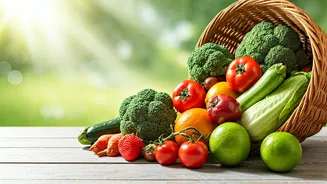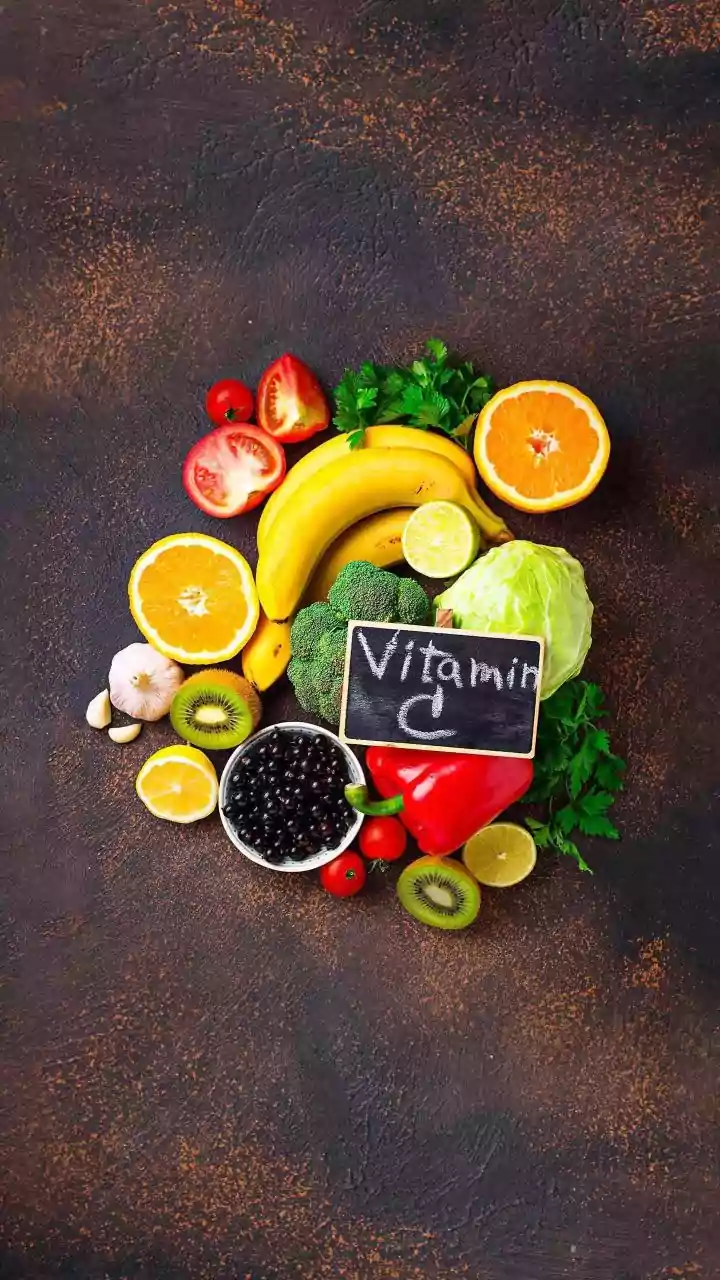Peppermint Powerhouse
Peppermint isn't just a refreshing flavor; it's a gut-friendly superhero! Peppermint oil, for instance, is a well-regarded remedy for irritable bowel syndrome
(IBS). It works by relaxing the muscles of your digestive tract, thus alleviating bloating, gas, and abdominal pain. You can try peppermint tea or use peppermint oil supplements to get these benefits. It's advisable to take it between meals to maximize its effectiveness. Incorporating peppermint into your routine is a simple, effective step toward improved digestive comfort, providing a natural path to reducing discomfort and promoting better gut health. The soothing effects of peppermint can also aid in reducing cramping, offering a more comprehensive approach to managing digestive issues and enhancing your overall well-being. So, explore peppermint's various forms – teas, oils, or candies – and experience the difference it can make in your digestive health.
Ginger's Digestive Aid
Ginger is another champion for your digestive system. It's a natural anti-inflammatory and has been used for centuries to soothe digestive issues. Ginger helps to speed up the emptying of the stomach, which can reduce bloating and discomfort. It is also well-known for reducing nausea, making it especially helpful for those experiencing digestive upset. You can use ginger fresh in your meals, as a spice, or enjoy ginger tea for its benefits. The active compounds in ginger work synergistically to alleviate bloating and gas, making it a powerful ally in the fight against digestive woes. Including ginger in your daily diet is an easy and delicious strategy for promoting digestive health. This flavorful root offers a natural, time-tested solution for reducing bloating and improving overall gut function, contributing to a more comfortable and healthy lifestyle.
Bananas for Relief
Did you know that bananas are not only delicious but also excellent for reducing bloating? Bananas are rich in potassium, an essential mineral that helps regulate fluid balance and reduce water retention in the body. When you experience bloating, it can often be due to excess sodium in your diet, which causes your body to hold onto water. Potassium helps counteract this by promoting sodium excretion through urine. This diuretic effect can alleviate bloating and discomfort. Moreover, bananas are high in soluble fiber, which aids in digestion and helps prevent constipation, another common contributor to bloating. Enjoying a banana as a snack or adding it to your breakfast is an easy and effective method to incorporate these benefits into your daily routine. By integrating this fruit, you can promote a healthier digestive system and enjoy a more comfortable lifestyle.
Fennel Seeds’ Magic
Fennel seeds, those tiny, aromatic seeds, are a powerful weapon against bloating. They've been used for centuries in traditional medicine to soothe digestive issues. Fennel seeds contain compounds that help relax the muscles of the digestive tract, reducing gas and bloating. The seeds also possess anti-inflammatory properties, further contributing to their effectiveness in relieving discomfort. You can chew on fennel seeds after meals, brew them into a tea, or add them to your cooking. The natural properties in fennel seeds aid in easing digestive issues. Incorporating fennel seeds into your diet is a simple yet effective strategy for enhancing your digestive well-being. They provide a flavorful, natural solution to bloating, offering relief and promoting healthier digestion. Enjoying fennel seeds can become a pleasant, health-conscious habit to support your overall wellness.
Turmeric's Anti-Inflammation
Turmeric is a vibrant spice that not only enhances the flavor of your meals but also works wonders for your digestive system. Its active compound, curcumin, is a potent anti-inflammatory agent. Inflammation in the gut can lead to bloating and discomfort. By reducing inflammation, turmeric helps alleviate these symptoms. Regular consumption of turmeric can promote better digestion and reduce the occurrence of bloating. You can use turmeric in your cooking, add it to smoothies, or take it in supplement form. The spice’s versatility makes it easy to integrate into your daily routine. By adding turmeric, you're embracing a natural approach to reducing bloating and improving your digestive health. Turmeric's anti-inflammatory properties make it a valuable addition to your diet. It supports both immediate relief and long-term gut well-being, enhancing your comfort and vitality.
Water's Hydrating Role
Staying hydrated is crucial for overall health, and it plays a significant role in preventing bloating. Water helps in the smooth functioning of the digestive system by aiding the breakdown of food and the absorption of nutrients. Dehydration can lead to constipation, which is a major contributor to bloating and gas. Drinking enough water throughout the day ensures that your digestive processes are running smoothly. Aim for at least eight glasses of water daily. This simple habit can greatly reduce bloating. Staying hydrated can promote healthier digestion and prevent discomfort. Making sure you get enough water will help flush out excess sodium and waste, supporting your digestive health. It is an easy way to prevent bloating, promote a healthier, more comfortable digestive system, and feel better overall.
Yogurt's Probiotic Boost
Yogurt, especially those rich in probiotics, is a powerful ally in the fight against bloating. Probiotics are beneficial bacteria that promote a healthy balance in your gut microbiome. These bacteria aid in digestion by breaking down food and preventing the buildup of gas and bloating. The consumption of yogurt can improve the symptoms of irritable bowel syndrome (IBS), a condition commonly associated with bloating. Look for yogurts with live and active cultures. Incorporating yogurt into your diet is a delicious and effective method to enhance digestive health. Enjoy it as a snack, add it to your breakfast, or use it in smoothies. By integrating probiotic-rich yogurt, you're embracing a natural strategy to minimize bloating. It will improve digestive comfort and support overall wellness, contributing to a lighter and more comfortable feeling.
Cucumber's Refreshing Relief
Cucumbers are a fantastic choice for combating bloating, owing to their high water content and mild diuretic properties. They aid in flushing out excess fluids, which can cause bloating. The low-calorie and refreshing nature of cucumbers make them an excellent addition to any diet. Eating cucumbers provides a cooling effect, which can soothe the digestive tract. They are also rich in fiber, which helps promote regular bowel movements and prevents constipation. Enjoying cucumber slices as a snack or incorporating them into your salads is a simple and effective method to experience their benefits. They can aid in keeping you hydrated and support smooth digestion. These benefits make cucumbers an excellent, natural option for reducing bloating and improving your overall digestive health, ensuring you feel lighter and more comfortable.
Pineapple's Digestive Enzymes
Pineapple is not only a tasty tropical fruit but also a great option to reduce bloating, primarily due to its enzyme bromelain. Bromelain is a powerful enzyme that helps break down proteins and can aid in digestion, reducing gas and bloating. Consuming pineapple can relieve symptoms of IBS, contributing to the fruit's reputation as a gut-friendly option. It has anti-inflammatory properties, which also help reduce swelling and discomfort. You can enjoy pineapple fresh, add it to your smoothies, or include it in your salads. The natural enzymes in pineapple help support the digestive process and alleviate bloating. Adding this fruit into your diet is a delicious and efficient way to foster digestive health, offering relief from bloating and enhancing your overall well-being. Regular consumption ensures a more comfortable and happy digestive experience.
Papaya's Digestive Support
Papaya is another fruit packed with enzymes that are effective against bloating. Papain, a key enzyme in papaya, assists in breaking down proteins, which improves digestion and diminishes gas and bloating. Papaya can help relieve discomfort from IBS and other digestive issues. It has anti-inflammatory benefits that aid in reducing stomach swelling. You can enjoy papaya fresh, or in smoothies, or add it to your salads. Incorporating papaya into your diet provides a natural way to reduce bloating and support the digestive process. The enzymes in papaya improve digestive health and boost overall wellness. Regular consumption promotes more comfortable digestion. Papaya's enzymatic properties help break down food efficiently, which reduces the production of gas and prevents bloating.


















